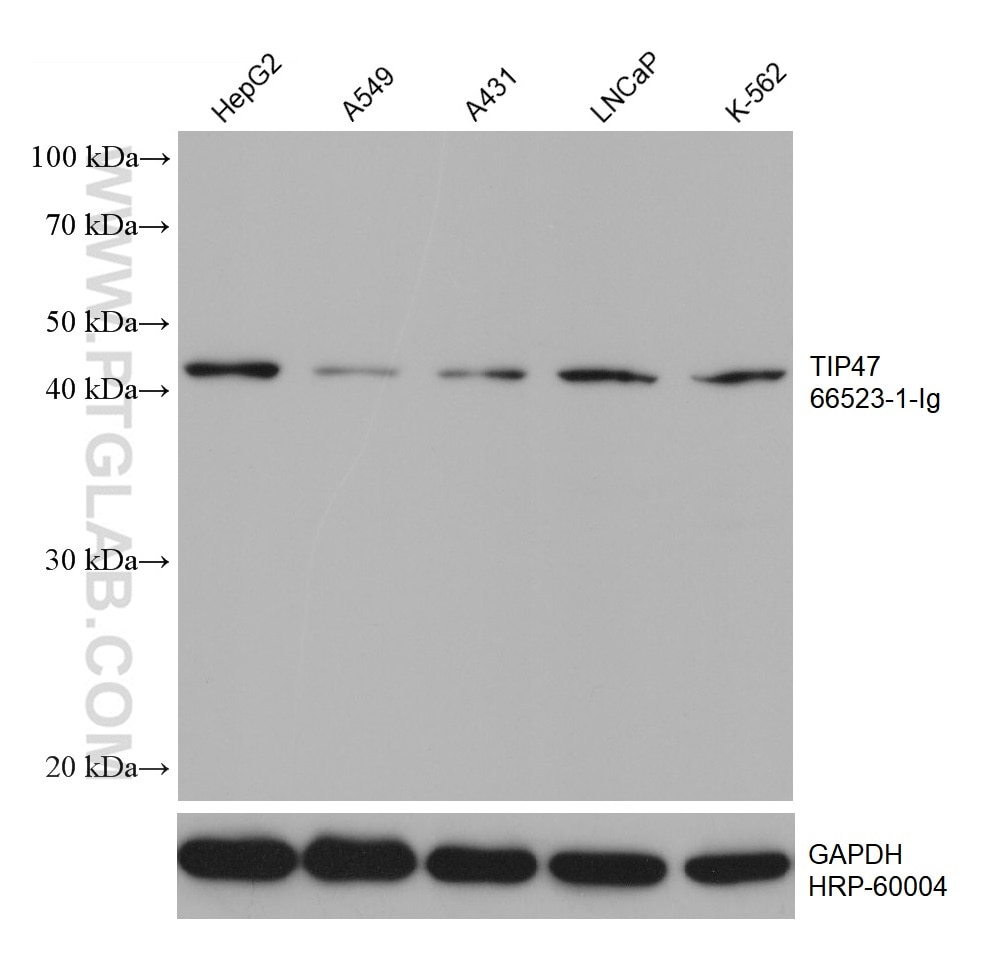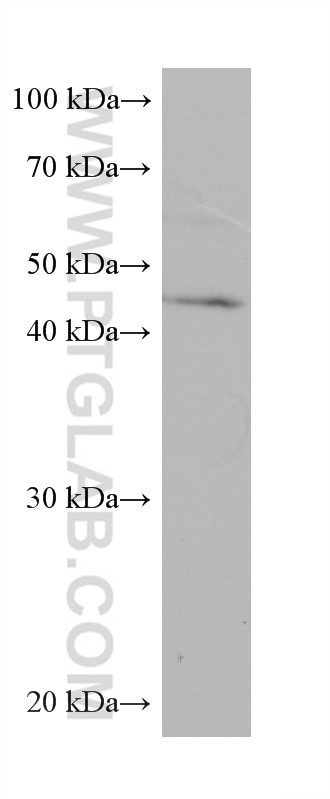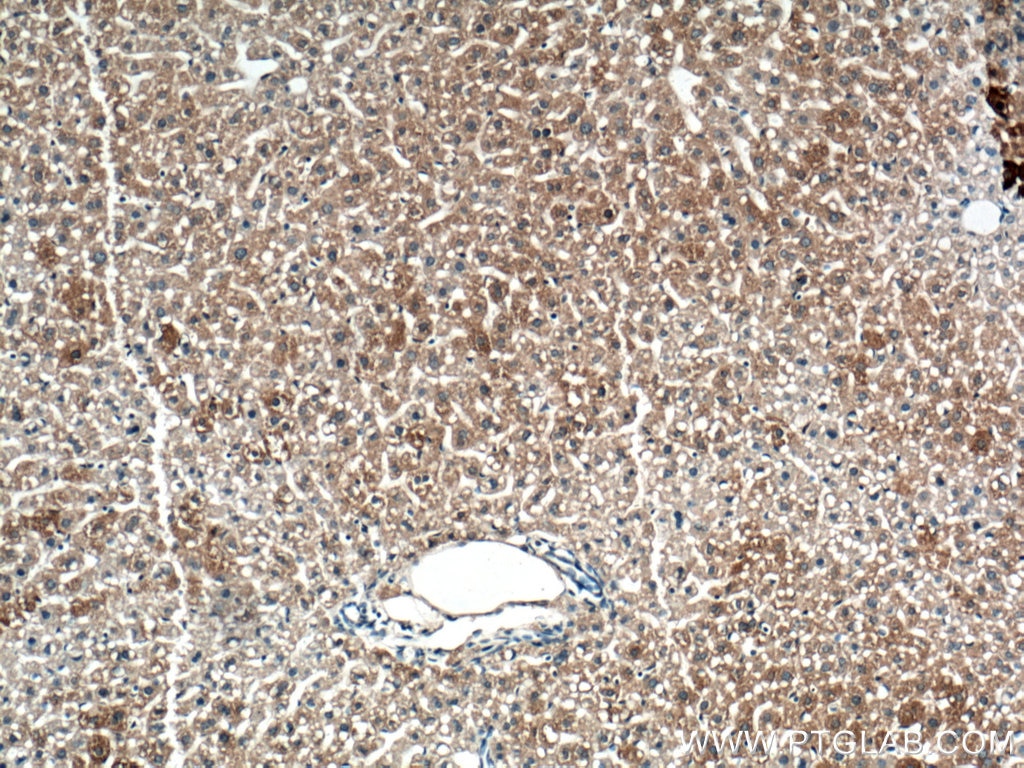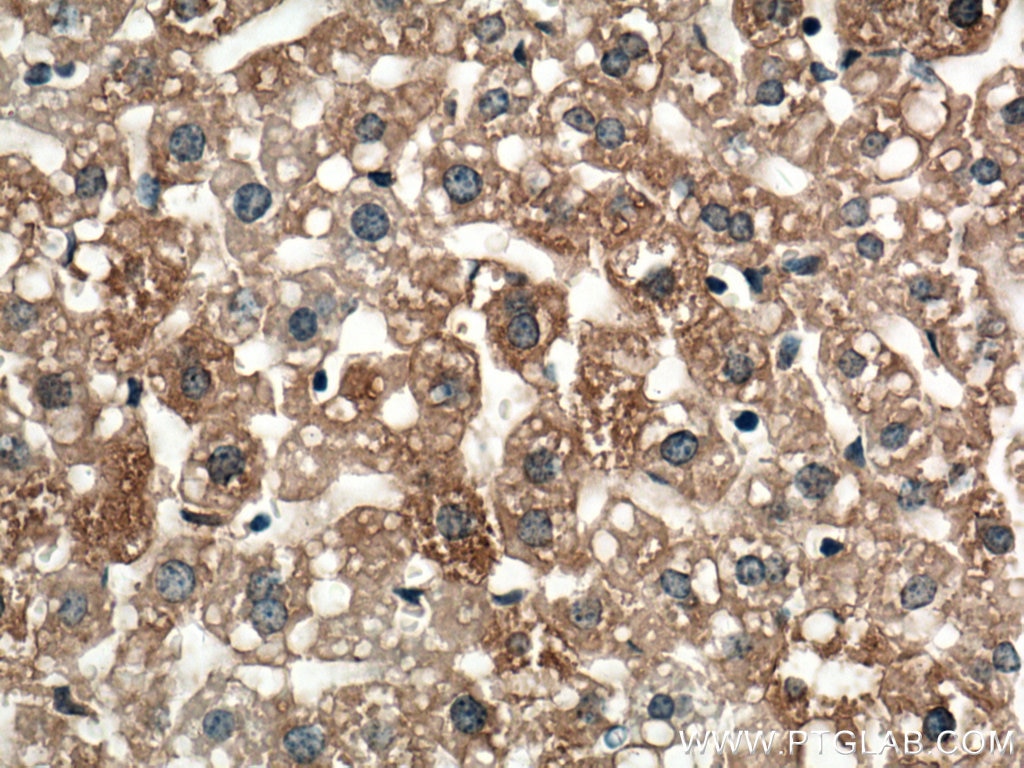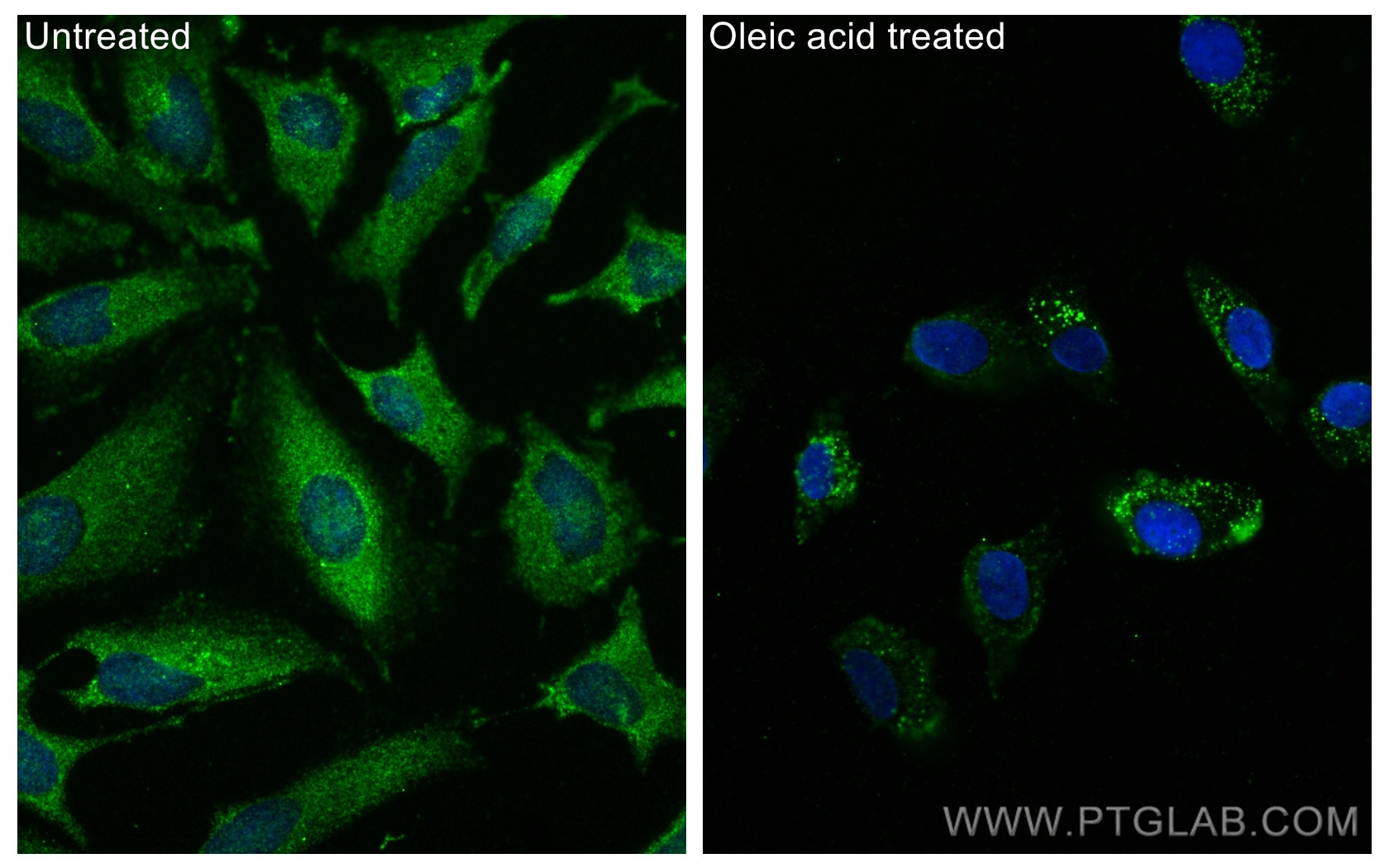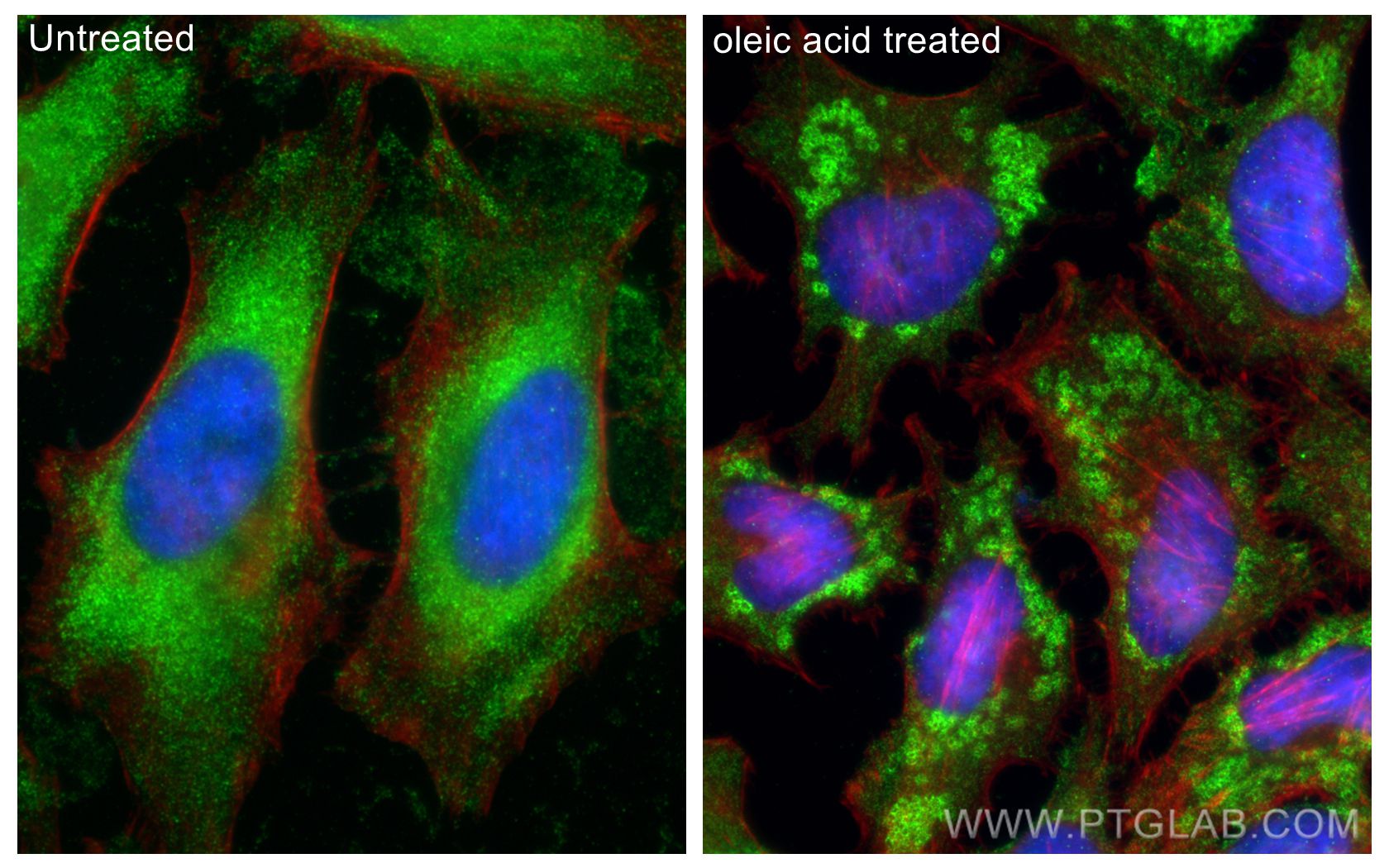Validation Data Gallery
Tested Applications
Recommended dilution
| Application | Dilution |
|---|---|
| It is recommended that this reagent should be titrated in each testing system to obtain optimal results. | |
Product Information
66523-1-PBS targets Perilipin 3/TIP47 in WB, IHC, IF/ICC, Indirect ELISA applications and shows reactivity with human, mouse samples.
| Tested Reactivity | human, mouse |
| Host / Isotype | Mouse / IgG1 |
| Class | Monoclonal |
| Type | Antibody |
| Immunogen |
CatNo: Ag1028 Product name: Recombinant human M6PRBP1 protein Source: e coli.-derived, PGEX-4T Tag: GST Domain: 134-434 aa of BC007566 Sequence: EMVSSAKDTVATQLSEAVDATRGAVQSGVDKTKSVVTGGVQSVMGSRLGQMVLSGVDTVLGKSEEWADNHLPLTDAELARIATSLDGFDVASVQQQRQEQSYFVRLGSLSERLRQHAYEHSLGKLRATKQRAQEALLQLSQALSLMETVKQGVDQKLVEGQEKLHQMWLSWNQKQLQGPEKEPPKPEQVESRALTMFRDIAQQLQATCTSLGSSIQGLPTNVKDQVQQARRQVEDLQATFSSIHSFQDLSSSILAQSRERVASAREALDHMVEYVAQNTPVTWLVGPFAPGITEKAPEEKK 相同性解析による交差性が予測される生物種 |
| Full Name | mannose-6-phosphate receptor binding protein 1 |
| Calculated molecular weight | 47 kDa |
| Observed molecular weight | 47 kDa |
| GenBank accession number | BC007566 |
| Gene Symbol | TIP47/PLIN3 |
| Gene ID (NCBI) | 10226 |
| RRID | AB_2881886 |
| Conjugate | Unconjugated |
| Form | |
| Form | Liquid |
| Purification Method | Protein G purification |
| UNIPROT ID | O60664 |
| Storage Buffer | PBS only{{ptg:BufferTemp}}7.3 |
| Storage Conditions | Store at -80°C. |
Background Information
Mannose 6-phosphate receptors (M6PRs) transport newly synthesized lysosomal hydrolases from the Golgi to prelysosomes and then return to the Golgi for another round of transport. M6PRBP1 (mannose-6-phosphate receptor binding protein 1), also known as TIP47, PLIN3 or PP17, interacts with the cytoplasmic domains of both cation-independent and cation-dependent M6PRs, and is required for endosome-to-Golgi transport. In addition to M6PR recycling, M6PRBP1 plays a role in lipid droplet biogenesis, and is also implicated in rhodopsin photobleaching and viral infection. M6PRBP1 has been found to be expressed in a variety of human tissues (including colon, liver and lung parenchyme, mammary gland, and skin) and is overexpressed in certain cancer cell lines. It binds to lipid droplets and also occurs in cytosol and on endosomal membranes.
